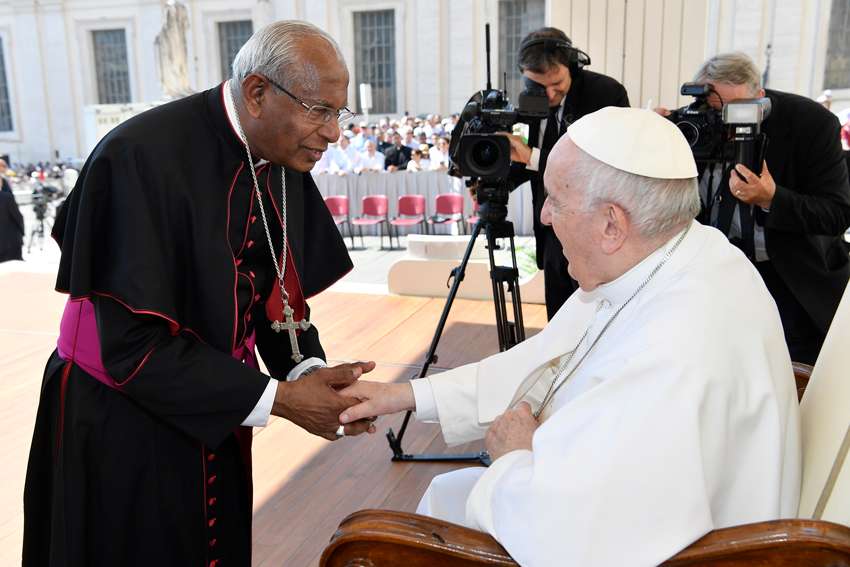KOCHI, India -- A top court in the southern Indian state of Kerala has ordered police protection for the apostolic administrator of an archdiocese in the Eastern rite Syro-Malabar Church, which is embroiled in a bitter liturgical dispute.
The High Court of Kerala granted the request Dec. 5 in a lawsuit by Archbishop Andrews Thazhath, administrator of the Kochi-based Archdiocese of Ernakulam-Angamaly, ucanews.com reported.
The court also directed the police to remove the protesting priests and laypeople blocking his entry into the archbishop’s house.
Justice Anu Sivaraman in a brief order termed those who are blocking the archbishop’s entry into the residence as “miscreants or outsiders.”
Pope Francis appointed the archbishop as administrator July 30, with a mandate to settle a liturgical dispute caused by the stiff opposition to the decision of the Syro-Malabar synod to have uniformity in the celebration of Mass.
The dispute began when Thazhath unilaterally revoked a dispensation that had allowed priests to celebrate Mass facing the people. The protesting groups want to continue with the traditional Mass in which the priest faces the congregation throughout, despite a rule that took effect in 2021.
Under that rule, devised as a compromise, the synod ruled that the priest “will face the congregation until the eucharistic prayer, and then again from Communion to the end of the Mass. From eucharistic prayers until Communion, the priest will face the altar.”
Since mid-October, laypeople had maintained a round-the-clock vigil to stop the Vatican-appointed administrator from entering the archbishop’s house.
Thazhath in his court petition mentioned representatives of the Archdiocesan Protection Committee and the Archdiocesan Movement for Transparency as respondents.
The ongoing liturgical dispute took an ugly turn when Thazhath was denied entry to St. Mary’s Cathedral Basilica to celebrate Mass Nov. 27. Thazhath arrived at the cathedral ignoring cautions from clergy and archdiocesan officials that people were agitated, several priests said.
The prelate then headed for the archbishop’s house, where a crowd broke open the main gates and vandalized furniture, portraits and other objects.
“Even now, without any authority, certain persons who trespassed into the archbishop’s house continue to be there with an intention to obstruct the free movement of the petitioner,” Thazhath said in his court filing.
The prelate said a complaint was lodged with the police and sought protection for “smooth ingress and egress into the church (cathedral) and the archbishop’s house.”
He further alleged in the petition that the police did not adequately respond to his request for protection.
Thazhath said he is unable to carry out the duties assigned to him by the Vatican and hence, a majority of the believers “are in total darkness.”
The other 32 dioceses of the Syro-Malabar Catholic Church in Kerala have complied with the directions of the synod to have the unified Mass. The protesters want their traditional mode to be given a “liturgy variant status” and has threatened to break ties with the Catholic Church if the demand is not met.


